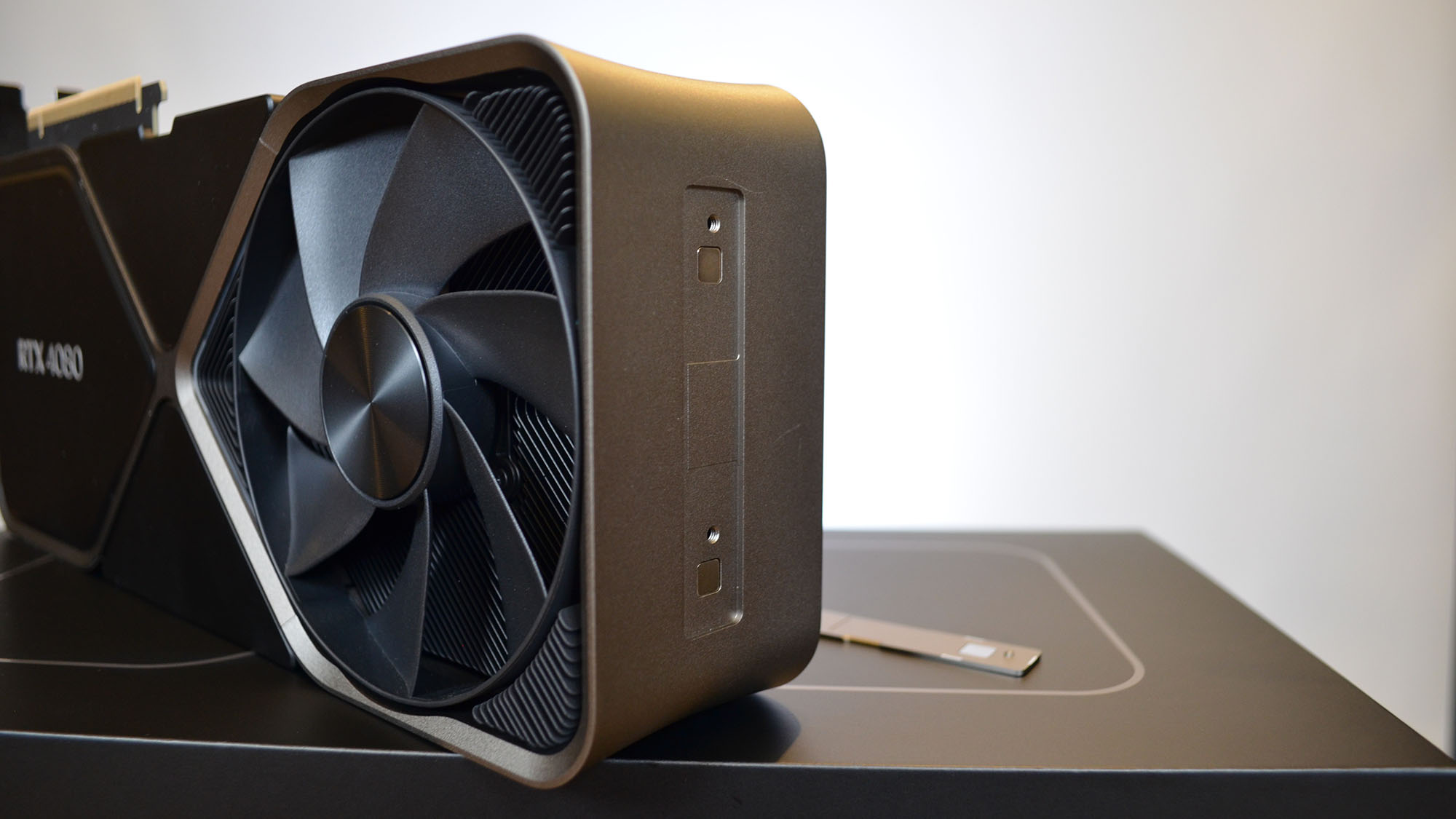Nvidia throws shade at AMD drivers as RDNA 3 GPUs are launched
More shots fired in the graphics card driver wars

Sign up for breaking news, reviews, opinion, top tech deals, and more.
You are now subscribed
Your newsletter sign-up was successful
Nvidia has been engaging in firing more flak at AMD over the quality of its rival’s GPU drivers (in an indirect fashion), in what has been something of a running battle over the course of this year (Intel takes some shots here too, mind).
As Tom’s Hardware reports, Nvidia’s Senior Product Manager for GeForce drivers, Sean Pelletier, shared a table of driver update frequency over the last two years for AMD, Nvidia and Intel.
For anyone keeping track of driver releases for gamers:#GeForce #GameReadyDrivers pic.twitter.com/yurEIWsVBHDecember 8, 2022
The message is that Nvidia delivers a lot more driver updates on a regular basis for gamers, with 20 WHQL-certified graphics driver versions in 2021, and 18 in 2022 (up to December 8). WHQL stands for Windows Hardware Quality Labs, so they’re certified by Microsoft.
That compares to 5 and 6 WHQL-certified releases for AMD respectively, though Team Red also pushed out 24 and 19 beta drivers in 2021 and 2022. For Intel, the release driver tally was 9 and 6 certified, plus 5 and 13 beta drivers over 2021 and 2022 respectively.
Pelletier observes that Nvidia introduced support for a good deal more games with these driver releases, too: 75 and 69 games to be precise, for 2021 and 2022, compared to 37 and 29 for AMD, plus 5 and 28 respectively for Intel.
Analysis: A war of words that does no one any favors, really
This is yet another not-so-subtle dig at AMD (mainly, and Intel on the side) and its driver quality. Yes, this has happened before, back in April of this year, where in a video presented by Pelletier, Nvidia asserted that it doesn’t “release sub-par beta drivers with minimal testing”, a clear shot at AMD even if Team Red wasn’t mentioned by name.
Clearly, the reinforced suggestion here is to again show how many AMD drivers are released in beta, and that this is a weakness compared to how Nvidia’s drivers are all finished versions.
Sign up for breaking news, reviews, opinion, top tech deals, and more.
The reality of driver development is not quite as simple as that, though, as AMD pointed out when it fired a salvo back at Nvidia in July, replying (indirectly, again) to Team Green’s original video and sub-par driver suggestions. AMD pointed out various counterarguments, in fact, and underlined that its beta drivers (or ‘optional’ drivers as the firm prefers to call them) may not be actually WHQL-certified, but they are technically WHQL-ready.
In other words, AMD claimed its beta drivers undergo the “same strenuous validation” as the release versions, they just aren’t looked at by Microsoft. Furthermore, AMD boasted it tested drivers on more system configurations than Nvidia. Indeed, Team Red said that: “AMD Optional [beta] drivers are more akin to the production-grade drivers from our competitors.” And that having beta drivers with months of public usage was an advantage in preparing tighter release drivers.
Really, it’s an argument that can go back and forth, and frankly, probably one that does neither company any favors ultimately. Both companies’ driver development processes will have their negatives and positives, ups and downs, but in the end, it’s only the finished quality that matters. (AMD may well assert that ‘Nvidia started it’ with this chain of arguments, but come on guys, let’s just drop it now).
Nvidia is likely hoping to fuel doubts rooted in the past for many veteran gamers, who don’t trust AMD drivers because way back when, they really could be quite dubious on the reliability front. But those days are long gone, and Radeon Adrenalin drivers have taken great strides in terms of stability since then.
The timing of this tweet doesn’t seem like any coincidence, of course, seeing as AMD has just launched its new RDNA 3 GPUs and sent them off to battle Nvidia’s RTX 4090 and 4080. So casting a little doubt on the software front looks like a tactical move, shall we say.
Nevertheless, graphics cards will stand on their reviews, user feedback, and sales, of course, and our verdict on the new flagship RX 7900 XTX is that it represents a superior choice to Nvidia’s RTX 4080 (with caveats, and admittedly, a fair chunk of preference here is based on the rather ridiculous pricing for the 4080, a situation that may be about to change).
Darren is a freelancer writing news and features for TechRadar (and occasionally T3) across a broad range of computing topics including CPUs, GPUs, various other hardware, VPNs, antivirus and more. He has written about tech for the best part of three decades, and writes books in his spare time (his debut novel - 'I Know What You Did Last Supper' - was published by Hachette UK in 2013).